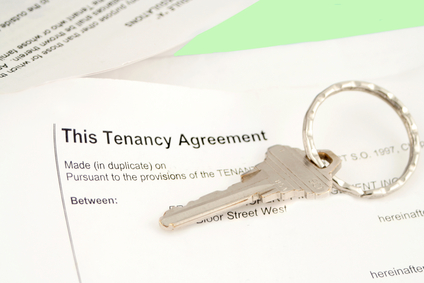GRAND BARGAIN:
An agreement between parties settling what each shall give and take or perform and receive in a transaction.
What can a renter expect to get when they sign a rental agreement? A place to live? Will it be heated? Will things be in working order? What do I have to repair? How quickly does the owner or Property Manager have to respond to our requests for repairs to be done? Who is responsible for what?
Lease Agreements are constructed to provide clear guidelines of the responsibilities required of the tenant. In Virginia, they specifically identify the amount of rent, when it is to be paid, how long the lease term is, and other specific “do’s & don’ts” the tenant is responsible for. These include, property “uses” (basically, obey the law and don’t cause any discord or nuisance), what you can do and have on the property, like “smoking” or pets, and where and what can be parked on the property. While these stipulations are routinely outlined in their own separate paragraphs within the Lease Agreement, most Agreements also include a lengthy paragraph dedicated exclusively to Tenant Obligations. It, more than any other part of the agreement, specifically, identifies what the tenant must do to honor their signed contractual commitment. While the Lease is provides the tenant a fairly comprehensive account of what they’re responsible for, another valuable document the tenant can turn to for guidance is the Commonwealth of Virginia’s Residential Landlord Tenant Act (VRLTA).
As its Introduction mentions, the VRLTA provides information on the rights, responsibilities, and remedies of and for Landlords and Tenants concerning the rental process. While the VRLTA covers most residential agreements, some properties are exempt from the Act. Among others, single family homes where the Landlord owns and rents ten or fewer such houses. However, we encourage all of our Landlords to opt into being covered by the VRLTA, which they have the option to do. Why? Because the Act provides written guidelines for both parties, which serve to clarify what the roles are for each party to the rental transaction. There is little room for doubt that the Act is a help, and not a hindrance for all parties involved.
As a tenant, sometimes, it’s confusing trying to determine what is required of you, other than paying the rent and the utilities. Like most of us, as obvious as it appears, it may not dawn on us to look back at the Lease we’ve signed. But, that’s exactly what we should be looking at for guidance. As we’ve all heard, “when in doubt, read the directions!”
The VRLTA makes it clear for both the Landlord and Tenant who is responsible for what. And, that’s about as clear as one could hope for.


